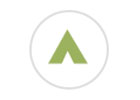- Conduct a water audit so you know how much you are using – Set up a system to record water on a quarterly basis, and review it annually to identify opportunities to reduce impact. (E.g. Metrics such as KwH/Ft2)
- Promote the use of reusable water bottles and mugs
- Change air conditioner and heater filters regularly (every 3 to 6 months)
- Have all water leaks fixed immediately
- If you need to water plants or grounds, water early in the day or late in the evening to minimize evaporation and water use
- Avoid bottled water. In some cities, local water trucks are available and will come to your event to promote local tap water
- Collect data and have completed a baseline diagnosis of your resource use
- Establish waste diversion targets prior to events and determine the best way to achieve them
- Install faucet and showerhead aerators and low-flush toilets where appropriate
- Look into the renewable energy and identify available funding opportunities to establish on-site solar or geothermal generation
- Use automatic taps to reduce water consumption by up to 70%
- Divert grey water and use it to water grounds or plants if applicable
- Go waterless at your porta potties and use sanitization gel instead
- Use solar thermal systems to heat water
- Collect rainwater and/or gray water for non-potable applications
- Incorporate stormwater management facilities into routine preventative and corrective maintenance programs
- Recycle wastewater on site (i.e. through man-made wetlands)
- Ban toxic chemicals on site
Best Practice Case Studies
Hillside Festival, Canada A water tanker is on site filled with City of Guelph tap water. The water is tested throughout the weekend to ensure its safety. Festival-goers can have their containers filled free of charge by volunteers. Pop Montreal, Canada The festival’s water initiative involves placing water jugs in all participating venues. Rather than be handed plastic bottles, all volunteers and artists involved with the festival will be provided a keepsake stainless steel bottle for use throughout POP and life. Shambala Festival, UK The “Bring a Bottle” campaign started in 2013 selling no bottled water on site. There is a site-wide ban on the sale of bottled water (and other drinks) at the festival, and all festival-goers, crew and artists are asked to bring a re-usable water bottle. The festival also provides some stainless steel re-usable bottles for sale for those who forget, with all profits going to the charity FRANK Water development projects. Cambridge Folk Festival, UK This festival’s water initiatives include water taps available to refill water bottles, taps used by campers that automatically switch off to conserve water, and backstage water coolers instead of plastic bottles.

Best Practice Case Studies
Best Practise Case Studies
Free Train
Coachella, United States
Coachella provides a free train ride exclusively for Coachella campers who didn’t have to drive to the festival.
Decoration Re-use
Ilosaarirock Festival, Finland
After the festival you can leave dismantled and packed tents and shelters at the info points. They will be used for the next festival to make festival decorations and other nice stuff. Those who recycle a tent get a surprise gift!
Clean Out Loud
Roskilde Festival, Denmark
Clean Out Loud is a trash project focusing on changing the way festival participants deal with trash. The goal of the program is to leave one of the entire camping sections completely cleaned. It will only succeed if all camps participate wholeheartedly. It isn’t that difficult: all you have to do is keep your own camp clean, and when you leave at the end of the festival you just have to make sure to leave nothing behind.
Love Your Tent
Isle of Wight Festival, England
Love your tent is a campaign created by Eco-Action Partnership in association with A Greener Festival and the Isle of Wight Festival. The campaign is designed to bond people with their portable homes and encourage them to reuse instead of discarding them. Left behind tents causes a huge problem for many festivals each year – not to mention the environmental impact. The aim is to make the process of getting up and leaving absolutely everything behind you after the event has finished, in order for somebody else to have clear it all up, completely socially unacceptable. This campaign is about behaviour change and we want to encourage people to have more respect, both for their environment and definitely for themselves.
Incentives
Camp Bestival, UK
Recycling bags are given out in the campsites for different recycling items such as plastic bottles and cans. Incentives are provided if people bring them to designated points, such as free tea for every full bag of recycling presented. All you need to do to claim your free cup of tea is to pick up the litter in and around your tent, pop it all into the freely available black waste and green recycling (cans, plastic bottles, newspapers, leaflets, cartons) bags and take a full(ish) bag to the recycling station in your campsite. And you can do that each and every day if you like.
Camping Zones
Splore, New Zealand
Each camping zone has a waste/ recycling hub, staffed by the zero waste team who will happily assist with bags and advice to get campers sorted. A big problem in 2014 was many campers left waste in their camp until departure on Sunday, leaving behind a mountain of putrefying rubbish. By getting it sorted often you will prevent contamination of recyclables with compost and waste. Also watch out for the mobile ‘curbside’ waste collection happening throughout the campsites on Saturday afternoon.
Environmentally Friendly
Dauphin’s Countryfest Manitoba, Canada
Being environmentally friendly at a festival requires campers and attendees to help out and become involved as well. Every camper entering the site is given and is encouraged to use separate bags for garbage and recyclables, and several barrels for garbage and recycling are placed throughout the site.


